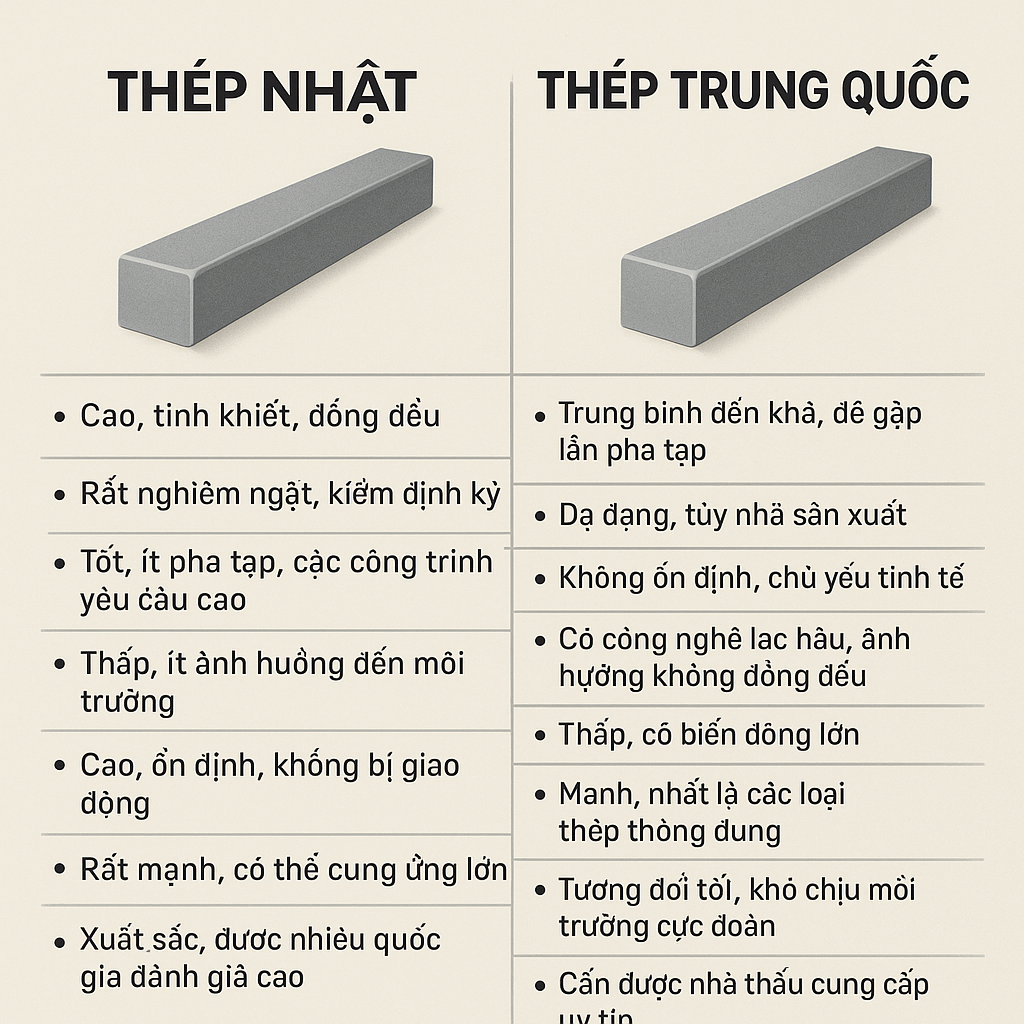WHY IS JAPANESE STEEL MORE EXPENSIVE THAN CHINESE STEEL?
Japanese steel is often more expensive than Chinese steel for several key reasons:
1. Higher Quality and Production Standards
- Japan is known for its strict manufacturing processes and rigorous quality control.
- Japanese steel typically has higher purity, better durability, rust resistance, and strength.
- It is suitable for projects requiring high technical standards or export-grade quality.
2. Advanced Manufacturing Technology
- Steel mills in Japan use advanced, environmentally friendly technologies.
- This results in more consistent and defect-free products, but also increases production costs.
3. Labor and Raw Material Costs
- Japan has significantly higher labor and operational costs compared to China.
- This leads to higher product prices.
4. More Limited Supply Compared to China
- China is the world’s largest steel exporter, producing on a massive industrial scale, which enables lower pricing due to economies of scale.
- In contrast, Japan produces less and focuses mainly on high-end segments.
5. Brand Value and Reliability
- Japanese steel is associated with being “durable – precise – safe.”
- Large-scale or foreign-invested projects often prioritize materials sourced from Japan.



